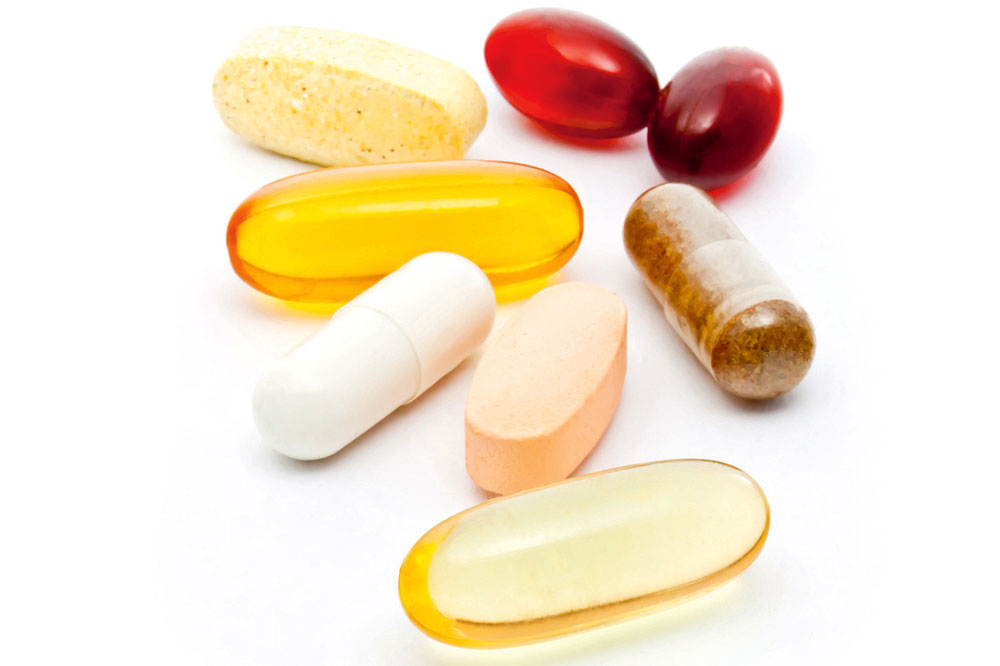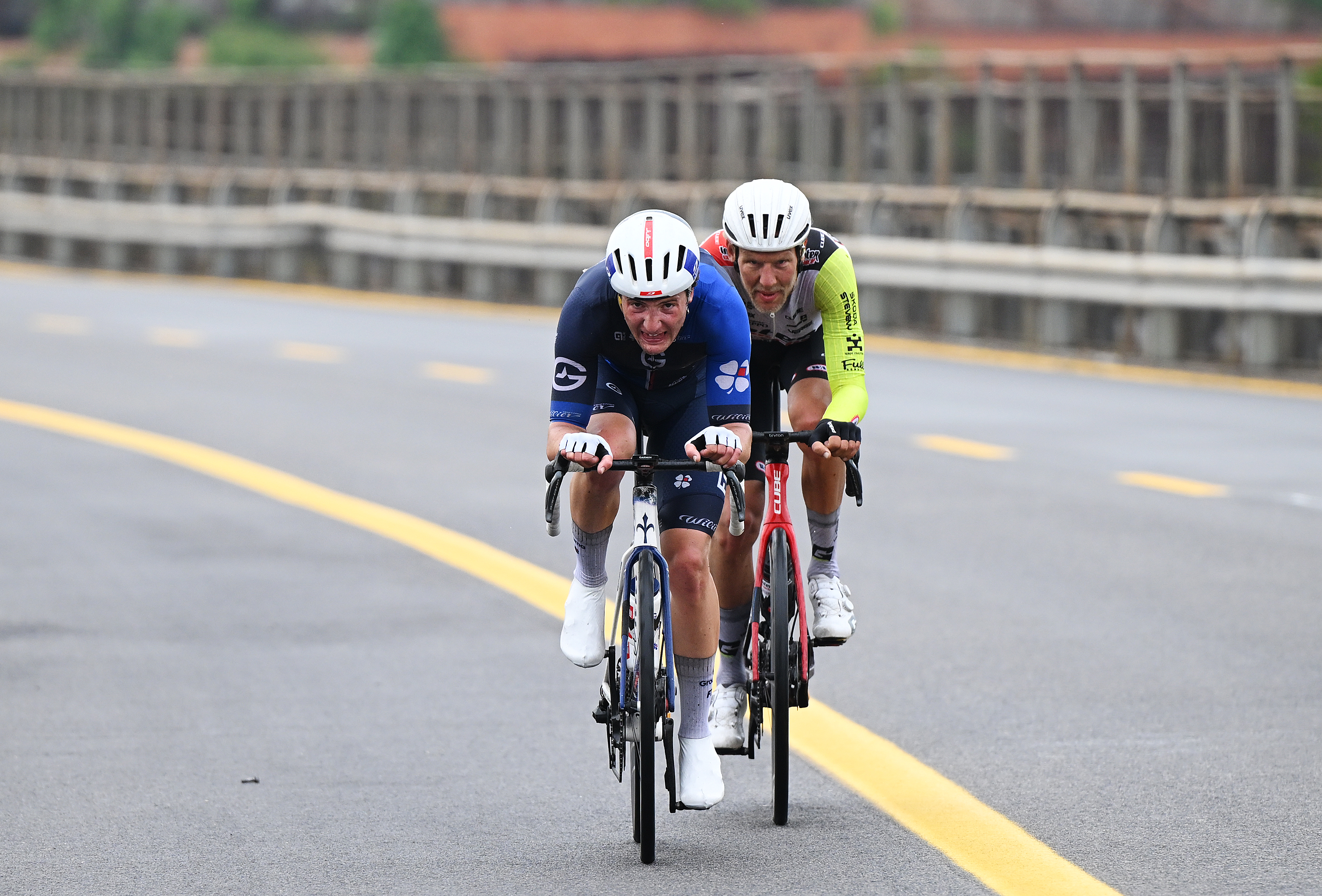Antioxidant supplements: helpful or harmful?

Antioxidants play a key role in helping to protect the body’s cells from ‘free radical damage’.
Scientists now believe that the accumulation of free radical damage over the years plays a large part in the aging process, as well as the development of degenerative diseases such as cancer — hence the recommendation that we all eat at least five portions of fresh fruit and vegetables a day!
Unsurprisingly perhaps, there are now dozens of antioxidant supplements on the market, some of which are aimed squarely at endurance sportsmen and women such as cyclists.
The reasoning is: cyclists might need greater antioxidant support because during long rides their bodies process a lot more oxygen than the average couch potato, and since most free radical activity in the body is generated from oxygen metabolism, more antioxidant protection is needed.
While this sounds good in theory, there’s been little evidence to support these claims. And now, a new study suggests that taking one particular antioxidant — N-acetyl cysteine (NAC) — may harm, rather than help, your cycling performance.
The science
In the study, researchers investigated the effects of NAC on metabolism during high-intensity interval exercise. Nine trained cyclists were self-paced over 10-minute time trial performances, using a double blind, randomised crossover trial (the most scientifically rigorous of all trial designs ).
Get The Leadout Newsletter
The latest race content, interviews, features, reviews and expert buying guides, direct to your inbox!
The cyclists performed two separate trials, each consisting of 6 x 5-minute bouts of intervals at 82 per cent of their maximum power output, followed two minutes later by a 10-minute time trial during which they had to sustain the fastest pace possible. For seven days before each trial, the cyclists took either an inert placebo pill or an NAC supplement, and the results were then compared.
The NAC supplement produced some positive changes in metabolism; the amount of fat utilised as fuel during the last two intervals of the interval session increased significantly, suggesting there was more efficient fat burning. Meanwhile, the amount of fatiguing blood lactate produced at the end of the time trial dropped by around 24 per cent.
When it came to the nitty gritty of time trial performance, however, the NAC supplementation wasn’t just ineffective — it actually harmed performance. When cyclists had supplemented with the placebo, they managed to maintain an average power output of 319 watts. But when they had supplemented with the NAC, this fell to just 305 watts.
Appl Physiol Nutr Metab. 2013 Dec;38(12):1217-27
The bigger picture
In addition to the latest findings, a 2012 study showed that supplementing NAC may impair the body’s ability to adapt to a training stimulus, such as a bout of cycling, because it interferes with the signalling pathways that enable muscles to switch genes required for improved aerobic metabolism.
Other recent studies have found that two more popular antioxidant supplements (quercetin and resveratrol) both seem to blunt the positive effects of exercise training — probably because they too interfere with signalling pathways in which free radicals play an important part!
Applying the science
Despite various health benefit claims, the jury is still very much out on antioxidant supplementation. In the meantime, the best current advice for cyclists interested in performance and health is as follows:
Don’t take antioxidant supplements to enhance your cycling performance — it’s unlikely they’ll help and they may even harm it.
To boost your antioxidant intake naturally, ensure you eat plenty of brightly coloured fresh fruits and vegetables — at least five portions a day.
1. Acta Physiol (Oxf). 2012 Mar; 204(3):382-92
2. Scand J Med Sci Sports. 2013 Oct 14. doi: 10.1111/sms.12136. [Epub ahead of print]
3. J Physiol. 2013 Oct 15;591(Pt 20):5047-59

Thank you for reading 20 articles this month* Join now for unlimited access
Enjoy your first month for just £1 / $1 / €1
*Read 5 free articles per month without a subscription

Join now for unlimited access
Try first month for just £1 / $1 / €1
Founded in 1891, Cycling Weekly and its team of expert journalists brings cyclists in-depth reviews, extensive coverage of both professional and domestic racing, as well as fitness advice and 'brew a cuppa and put your feet up' features. Cycling Weekly serves its audience across a range of platforms, from good old-fashioned print to online journalism, and video.
-
 'It's a shame it had to end like this' - Giro d'Italia stage 6 finale affected by protestors
'It's a shame it had to end like this' - Giro d'Italia stage 6 finale affected by protestorsBreakaway of Taco van der Hoorn and Enzo Paleni was held up by two protestors in Naples
-
 Kaden Groves wins crash-marred Giro d’Italia stage 6 in Naples
Kaden Groves wins crash-marred Giro d’Italia stage 6 in NaplesAustralian comes out on top in bunch sprint after chaotic day in Italy